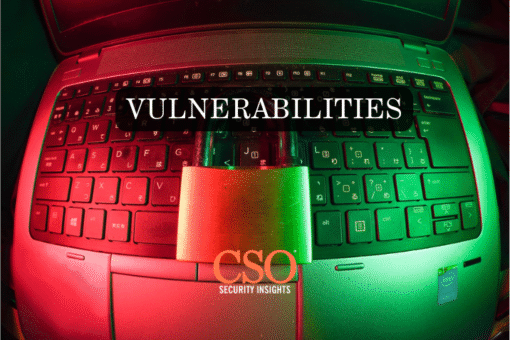Cybersecurity researchers have uncovered a severe security vulnerability that allows threat actors to weaponize publicly leaked Laravel APP_KEYs, potentially leading to remote code execution (RCE) on hundreds of applications.
According to a collaborative report by GitGuardian and Synacktiv, the Laravel APP_KEY, which is crucial for encrypting sensitive data, is frequently exposed in public repositories like GitHub. If attackers gain access to this key, they can exploit a deserialization flaw to execute arbitrary code on the server, putting sensitive data and critical infrastructure at risk.
GitGuardian revealed that it was able to extract more than 260,000 APP_KEYs from GitHub between 2018 and May 30, 2025, identifying over 600 vulnerable Laravel applications in the process. Of the over 10,000 unique APP_KEYs observed, 400 were validated as functional.
The Deserialization Flaw Explained
The APP_KEY is a 32-byte encryption key generated during Laravel installation and stored in the application’s .env file. It’s vital for encryption, decryption, secure string generation, data signing, and authentication token creation.
However, Laravel’s current decrypt() function implementation introduces a security weakness by automatically deserializing decrypted data. This opens the door to potential remote code execution. As security researcher Guillaume Valadon stated, “Specifically in Laravel applications, if attackers obtain the APP_KEY and can invoke the decrypt() function with a maliciously crafted payload, they can achieve remote code execution on the Laravel web server.”
This vulnerability isn’t entirely new; it was initially documented as CVE-2018-15133, affecting Laravel versions prior to 5.6.30. Alarmingly, this attack vector persists in newer Laravel versions when developers explicitly configure session serialization in cookies using the SESSION_DRIVER=cookie setting, as demonstrated by CVE-2024-55556. Notably, CVE-2018-15133 has already been exploited in the wild by threat actors associated with the AndroxGh0st malware, who scanned the internet for misconfigured Laravel applications.
The Dangers of Exposed Secrets
Further analysis by GitGuardian indicates that 63% of APP_KEY exposures originate from .env files (or their variants), which often contain other high-value secrets such as cloud storage tokens, database credentials, and secrets for e-commerce, customer support, and AI services.
Even more concerning, approximately 28,000 APP_KEY and APP_URL pairs have been concurrently exposed on GitHub. Roughly 10% of these pairs were found to be valid, rendering 120 applications vulnerable to trivial RCE attacks. The exposure of both APP_URL (the application’s base URL) and APP_KEY creates a potent attack vector, allowing threat actors to directly access the application, retrieve session cookies, and attempt to decrypt them using the leaked key.
Beyond Deletion: The Need for Secret Rotation and Monitoring
“Developers should never simply delete exposed APP_KEYs from repositories without proper rotation,” GitGuardian emphasized. The recommended response involves:
- Immediately rotating the compromised
APP_KEY. - Updating all production systems with the new key.
- Implementing continuous secret monitoring to prevent future exposures across CI logs, image builds, and container layers.
This type of incident highlights a broader issue of PHP deserialization vulnerabilities, where tools like phpggc can help attackers craft “gadget chains” that trigger unintended behaviors during object loading, leading to full RCE in Laravel environments with leaked keys.
A Wider Problem: Secrets in Docker Images and AI Workflows
This disclosure follows GitGuardian’s previous findings of a “staggering 100,000 valid secrets” in public Docker images on DockerHub, including AWS, Google Cloud, and GitHub tokens. A recent Binarly analysis of over 80,000 Docker images corroborated this, uncovering 644 unique secrets in various file types, including source code, configuration files, and even large binary files. The presence of entire Git repositories within container images was also noted as a significant and often overlooked security risk.
The rapid adoption of the Model Context Protocol (MCP) in enterprise AI applications has also introduced new attack vectors. GitGuardian discovered that 5.2% of MCP servers published to GitHub repositories leaked at least one secret, making them a “new source of secret leaks.”
While this research specifically targets Laravel, the underlying problem of unguarded secrets in public repositories extends to other technology stacks. Organizations should prioritize centralized secret scanning, implement Laravel-specific hardening guides, and adopt secure-by-design patterns for managing .env files and container secrets across all their frameworks.
Source: The Hacker News








